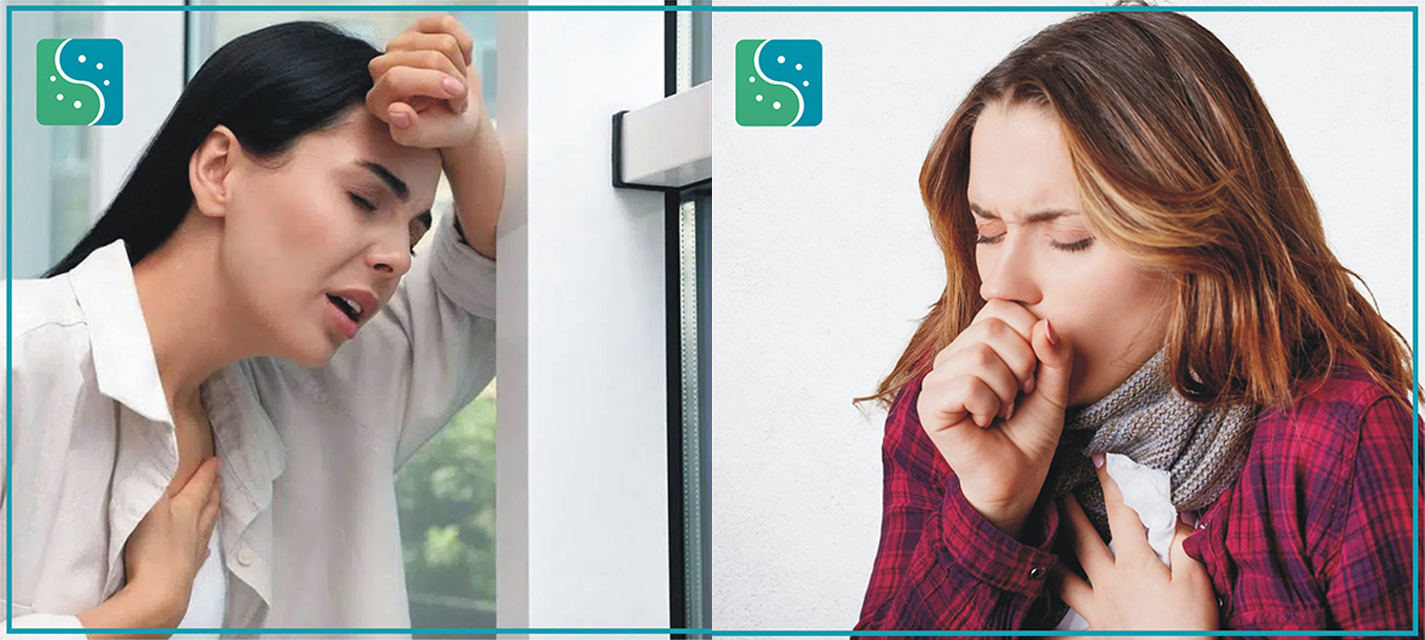BRONCHIAL ASTHMA (or asthma) is a lung disease in which the airways get narrow and swollen and are blocked by excess mucus.
Asthma is a chronic inflammatory disease of the airways that causes periodic "attacks" of coughing, wheezing, shortness of breath, and chest tightness. Allergies are strongly linked to asthma and to other respiratory diseases such as chronic sinusitis, middle ear infections, and nasal polyps. Most interestingly, a recent analysis of people with asthma showed that those who had both allergies and asthma were much more likely to have night-time awakening due to asthma, miss work because of asthma, and require more powerful medications to control their symptoms.
WHAT TRIGGERS AN ASTHMA ATTACK
Bronchial asthma triggers may include.
- Smoking and second hand smoke
- Infections such as colds, flu, or pneumonia
- Allergens such as food, pollen, mold, dust mites, and pet dander
- Exercise
- Air pollution and toxins
- Weather, especially extreme changes in temperature
- Drugs (such as aspirin, NSAIDs, and beta-blockers)
- Food additives (such as MSG)
- Emotional stress and anxiety
- Singing, laughing, or crying
- Perfumes and fragrances
- Acid reflux
SIGNS AND SYMPTOMS OF BRONCHIAL ASTHMA

With bronchial asthma, you may have one or more of the following signs and symptoms:
- Shortness of breath
- Tightness of chest
- Wheezing
- Excessive coughing or a cough that keeps you awake at night
DIAGNOSIS OF BRONCHIAL ASTHMA
Symptoms of asthma don't always happen during your doctor's appointment, hence it's important for you to describe your, or your child's, asthma signs and symptoms to your homoeopathic consultant. You might also notice the occurrence time of these symptoms such as during exercise or after smelling smoke.
Asthma tests may include.
- Spirometry. A lung function test to measure breathing capacity and how well you breathe. You will breathe into a device called a spirometer.
- Peak Expiratory Flow (PEF). Using a device called a peak flow meter, you forcefully exhale into the tube to measure the force of air you can expand out of your lungs. Peak flow monitoring can allow you to monitor how well your asthma is doing at home.
- Chest X-ray. Your doctor may do a chest X-ray to rule out any other diseases that may be causing similar symptoms.
HOMOEOPATHIC TREATMENT FOR BRONCHIAL ASTHMA
Today Asthma can be treated effectively with Homoeopathic medicines. and lifestyle changes like regular exercise. The majority of people can manage their condition and can live a symptom free life with homoeopathy.
FREQUENTLY ASKED QUESTIONS
You’ll need to visit a doctor to find out if you have asthma or some other condition. There are other respiratory diseases that make it hard to breathe or cause coughing and wheezing.
No. Asthma can’t be cured, but it can be managed. Children may outgrow asthma as they get older.
Asthma that gets worse at night is sometimes called night-time asthma or nocturnal asthma. There are no definite reasons that this happens, but there are some educated guesses. These include:
- The way you sleep. Sleeping on your back can result in mucus dripping into your throat or acid reflux coming back up from your stomach. Also, sleeping on your back puts pressure on your chest and lungs, which makes breathing more difficult. However, lying face down or on your side can put pressure on your lungs.
- Triggers in your bedroom and triggers that happen in the evening. You may find your blankets, sheets and pillows have dust mites, mold or pet hair on them. If you’ve been outside in the early evening, you may have brought pollen in with you.
- Medication side effects. Some drugs that treat asthma, such as steroids can affect your sleep.
- Air that’s too hot or too cold. Hot air can cause airways to narrow when you breathe in. Cold air is an asthma trigger for some people.
- Lung function changes. Lung function lessens at night as a natural process.
- Asthma is poorly controlled during the day. Symptoms that aren’t controlled during the day won’t be better at night. It’s important to work with your provider to make sure your asthma symptoms are controlled both day and night. Treating night-time symptoms is very important. Serious asthma attacks, and sometimes deaths, can happen at night.
If you have asthma that is moderate-to-severe, or if your asthma symptoms aren’t well controlled, you’re at greater risk of having to be hospitalized if you get COVID-19. Therefore, you should wear a mask if you go to indoor spaces with other people and avoid exposure to people who have the virus.
